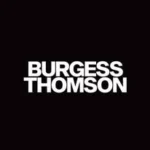Confidentiality and Non Disclosure Agreements
Business & Commercial
Maintain the Confidentiality of Your Most Valuable Information
In today’s fast-paced business environment, the protection of sensitive information is more critical than ever. Confidentiality agreements, also known as non-disclosure agreements (NDAs), are vital tools that help maintain the confidentiality of valuable information.
At Burgess Thomson, we specialise in creating robust confidentiality and non-disclosure agreements tailored to the unique needs of your business under Australian law.
How Burgess Thomson Can Help with Confidentiality Agreements
Expert Drafting of Agreements
Our legal team has extensive experience in drafting confidentiality agreements that cater specifically to the needs of your business. We understand the nuances of what makes an agreement comprehensive and enforceable under Australian law.
Defining the Scope of Confidentiality
We work with you to clearly define the scope of confidentiality, identifying the specific information that needs to be protected and setting out the parameters within which the information can be used.
Legal Review and Advice
Burgess Thomson offers a meticulous review of your existing agreements and provides expert legal advice to ensure that your NDAs and confidentiality contracts are up to date with current legislation and best practices.
Commercial Contract Review
We take a holistic approach by reviewing your entire commercial contract portfolio, ensuring that confidentiality and non-disclosure terms are consistent and effectively integrated throughout all your business agreements.
Tailored Legal Solutions
Our legal solutions are not one-size-fits-all. We tailor each confidentiality agreement to suit the particular circumstances of your engagement, ensuring the utmost protection for your sensitive information.
GET A QUICK QUOTE
Enter your details for an obligation free quote.
LEARN MORE
Let's Discuss Confidentiality Agreements.
Why Choose Burgess Thomson for Advice on Non Disclosure Agreements
- Specialised Knowledge: Our lawyers are well-versed in the intricacies of confidentiality and non-disclosure agreements within the Australian legal context.
- Customised Agreements: We deliver agreements that are customised to your specific business needs and the particularities of the information you wish to protect.
- Proactive Legal Protection: Burgess Thomson provides proactive legal protection for your sensitive business information, helping to prevent breaches before they occur.
- Confidentiality Expertise: Our expertise extends to all forms of confidentiality within contracts, ensuring that your information remains within the confines of your control.
- Legal Clarity: We bring clarity to the legal obligations and ramifications of NDAs, empowering you with the knowledge to enforce your rights.
- Industry-Leading Practices: Our firm stays abreast of industry-leading practices and legislative changes that affect the validity and enforceability of NDAs.
- Dedicated Support: We offer dedicated support and advice throughout the drafting, execution, and enforcement stages of your confidentiality agreements.
- Risk Management: Our risk management advice is designed to minimise the potential for information leaks and to outline clear steps in the event of a breach.
Whether you are in the preliminary stages of a business deal, engaging new employees, or collaborating with external partners, a well-structured confidentiality agreement is essential. Such agreements serve as a legal promise that sensitive information will not be disclosed, granting peace of mind and legal recourse should that trust be breached.
At Burgess Thomson, our commitment to safeguarding your confidential business information is paramount. Our experienced team ensures that every confidentiality agreement and NDA is crafted with precision, affording you the security and confidence to conduct your business affairs without concern.
Contact us today to ensure that your business’s most valuable information is protected by airtight legal agreements.
FAQ's
Not all information can be protected under a confidentiality or Non-disclosure Agreement. For example, information that is already public knowledge will not be able to be protected by a confidentiality agreement. The private information must be confidential in character, and there must be some basis for its secrecy.
It is common for companies to use confidentiality agreements to protect certain material such as trade secrets. Other common instances where confidentiality agreements are used include:
- During negotiations for a sale of business – this often occurs when the vendor lets the prospective buyer conduct due diligence on the business. The buyer will examine the business’ financial accounts and other sensitive data as part of investigating the business they may potentially purchase. In this instance, if you are selling a business you may wish to have a confidentiality agreement to ensure your business information remains protected from competitors.
- During a joint venture – by entering a joint venture agreement with another business, you usually reveal confidential details about each other’s business. This is carried out to gain an understanding of each party’s financial viability when establishing to join forces. A confidentiality agreement is often undertaken to ensure that neither party can exploit the sensitive business information of the other to their own advantage.
- Protecting a new concept or idea – often when you have a new idea for a business or product, you may need to approach someone for technical assistance, financial backing or a partnership opportunity. In these instances, you want a guarantee they will not steal your idea. A confidentiality agreement can be useful here.
- Employment Agreements – in some circumstances you may wish to protect trade secrets or confidential information your employees may encounter through their role. A confidentiality or NDA clause within an employment contract can be beneficial to ensure employees do not reveal this information during the course of their employment or after their employment has ended. This can be particularly useful in instances where employees have access to privileged intellectual property that you would like to remain confidential.
Usually, a confidentiality or non-disclosure agreement will include clauses which specify:
- The parties’ names;
- Information that will remain confidential;
- The purpose of disclosing the confidential information;
- The recipient’s obligation to ensure secrecy of the information is maintained;
- The period of time that the information will remain confidential;
- A clause that states if a recipient uses the confidential information for personal gain or in a detrimental manner, they will be breaching the contract; and
- The signatures of both parties involved.




